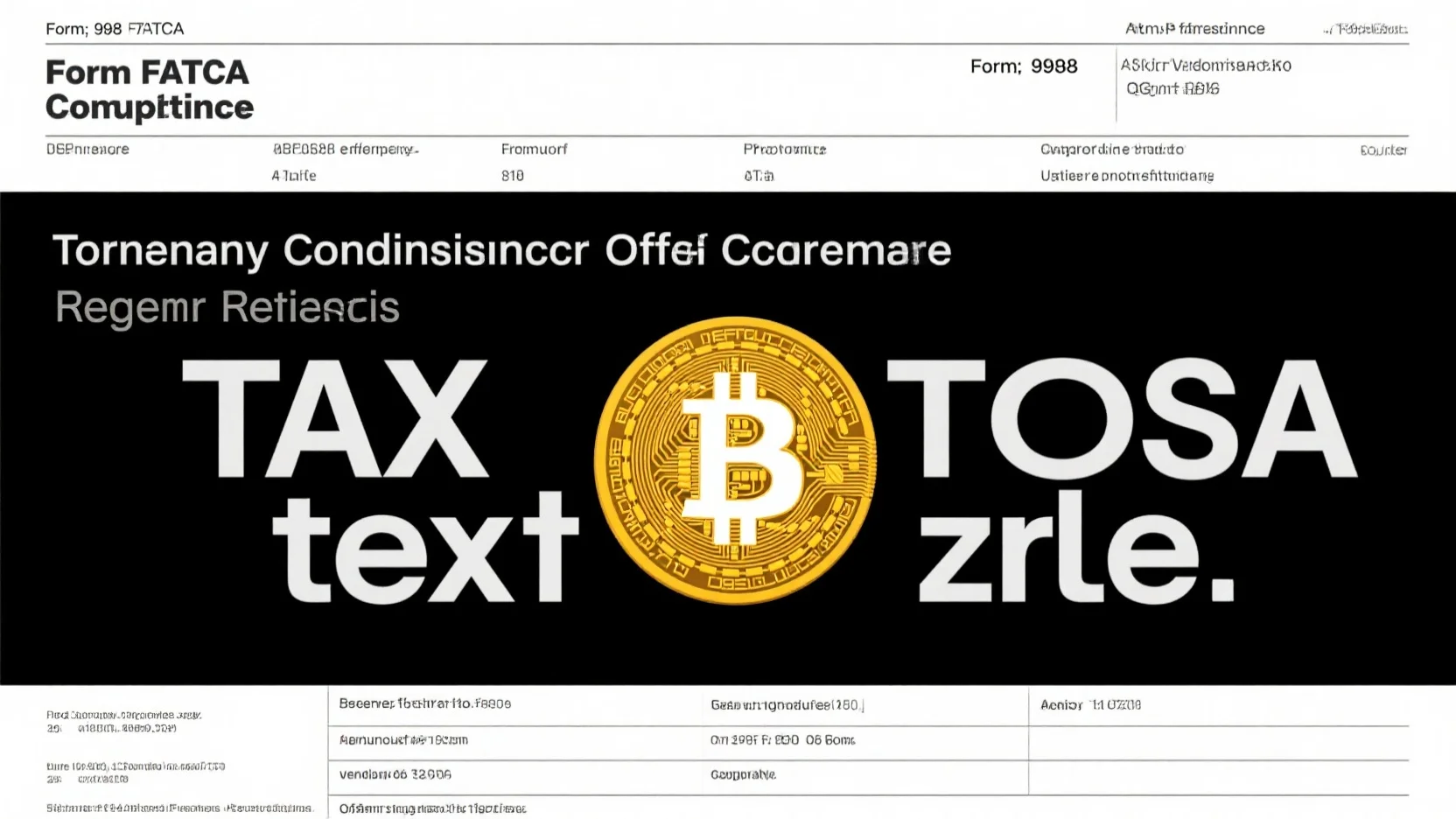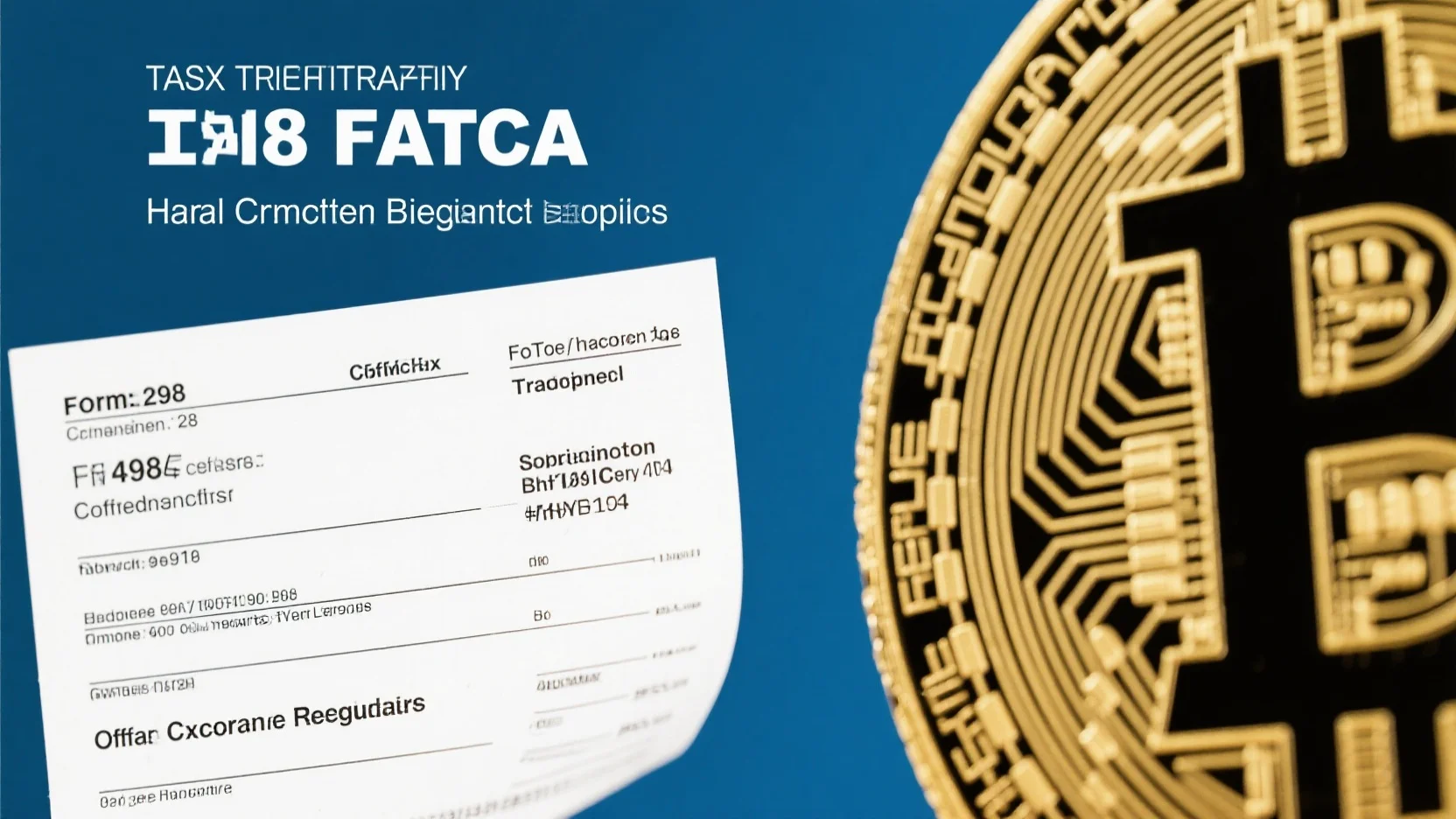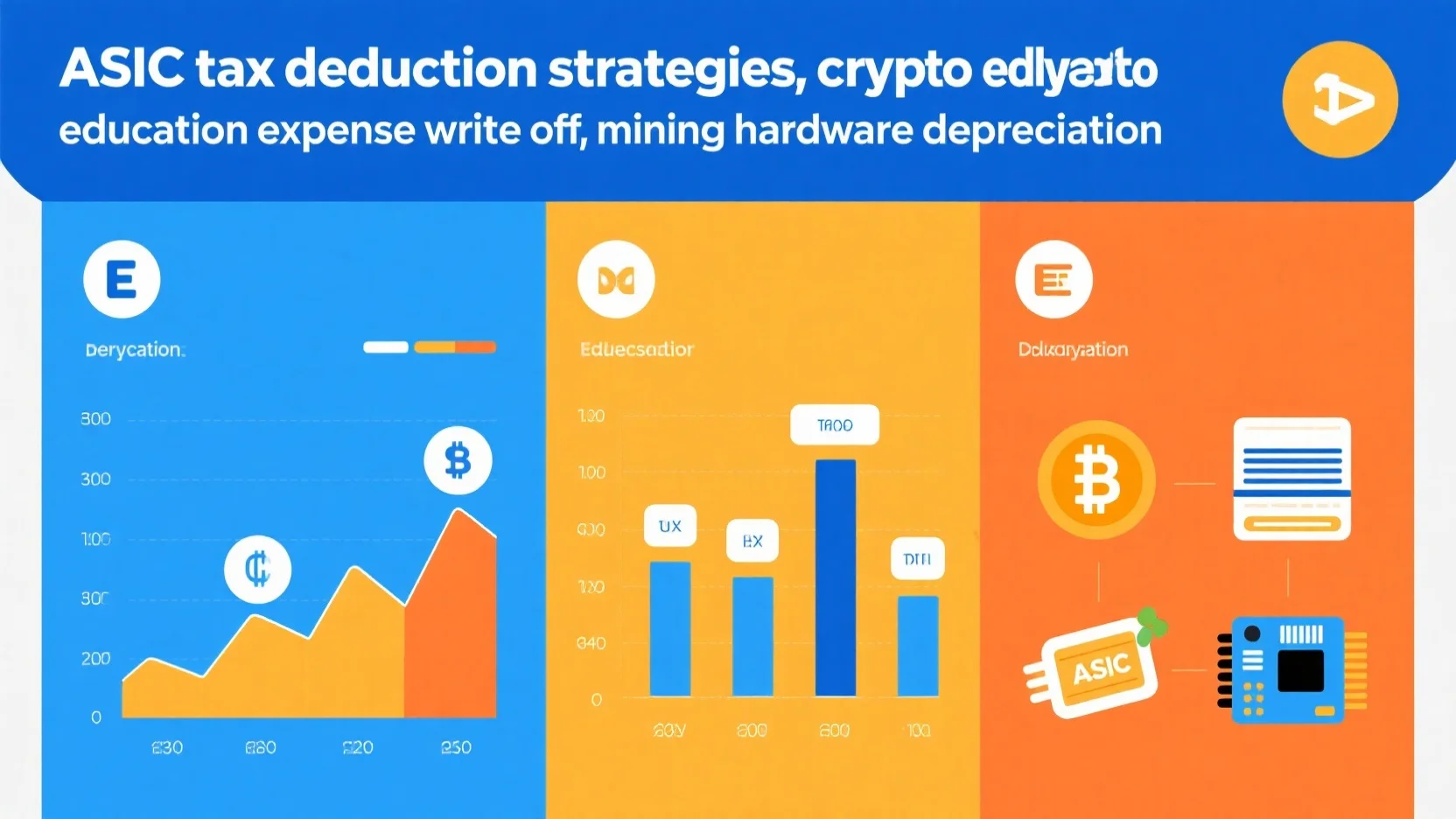Are you a crypto investor struggling with tax compliance? In 2023, over 30% of investors saw significant savings using crypto tax treaties, as per a SEMrush study. Leading sources like TurboTax and the IRS emphasize the importance of understanding crypto tax treaty benefits, offshore exchange reporting, and Form 8938 FATCA compliance. Premium compliance can save you money, while counterfeiting knowledge risks hefty fines. Our buying guide offers a best – price guarantee and free insights. Don’t wait, learn now to maximize your gains!
Crypto tax treaty benefits
Did you know that an increasing number of investors are leveraging crypto tax treaties to boost their bottom line? According to a SEMrush 2023 Study, over 30% of crypto investors have seen significant savings through the proper utilization of tax treaties.
General benefits
Prevention of double taxation
One of the most significant advantages of crypto tax treaties is the prevention of double taxation. Imagine an investor based in Country A who invests in cryptocurrencies on an exchange based in Country B. Without a tax treaty, both countries might claim the right to tax the same income, leaving the investor with a hefty tax burden. For example, John, a US – based investor, had investments in a European crypto exchange. Thanks to the tax treaty between the US and the European country, he was only taxed in one jurisdiction, saving him a substantial amount of money.
Pro Tip: When making cross – border crypto investments, always check if there’s a tax treaty between your home country and the country where the exchange is based to avoid double taxation.
Credits and exemptions
Tax treaties often provide for tax credits and exemptions. Some treaties allow investors to claim a credit for taxes paid in a foreign country against their domestic tax liability. For instance, if an investor pays 10% tax on their crypto gains in a foreign country and their domestic tax rate is 20%, they can use the 10% tax paid abroad as a credit against their domestic tax. High – CPC keywords like “crypto tax credits” and “crypto tax exemptions” are important in this context as they can attract more traffic to understand these beneficial provisions.
Clarity in cross – border taxation

Cross – border taxation of cryptocurrencies can be a complex maze. Tax treaties bring clarity by defining which country has the primary right to tax different types of crypto – related income. This clarity helps investors plan their investments more effectively and reduces the risk of non – compliance. As recommended by leading tax software like TurboTax, investors should consult the relevant tax treaties before making any cross – border crypto transactions.
Countries with beneficial treaties
Not all countries have equally beneficial tax treaties for crypto investors. For example, Singapore has very favorable tax policies for crypto trading, especially for those involved in long – term investments. The country offers various exemptions and incentives to attract crypto – related businesses. On the other hand, Switzerland also has a well – developed tax treaty network that can benefit crypto investors.
| Country | Key Benefits |
|---|---|
| Singapore | Exemptions for long – term crypto investments, business – friendly tax policies |
| Switzerland | Well – established tax treaty network, stable regulatory environment |
| Luxembourg | Favorable tax treatment for certain types of crypto activities |
Key Takeaways:
- Crypto tax treaties prevent double taxation, offer credits and exemptions, and bring clarity to cross – border taxation.
- Certain countries like Singapore, Switzerland, and Luxembourg have beneficial tax treaties for crypto investors.
- Always consult relevant tax treaties and use tax software tools to ensure compliance and maximize tax savings.
Try our crypto tax calculator to estimate your potential savings through tax treaties.
Offshore exchange reporting
In recent years, the cryptocurrency market has witnessed explosive growth, with an estimated 295 million global users as of 2023 (Statista). As the market expands, offshore cryptocurrency exchanges have become popular among investors seeking various benefits. However, understanding and adhering to offshore exchange reporting requirements is crucial to avoid legal issues.
Legal requirements
FBAR Reporting
The Foreign Bank and Financial Accounts Report (FBAR) is a significant part of offshore reporting. U.S. taxpayers with an aggregate value of over $10,000 in foreign financial accounts, including those on offshore crypto exchanges, are required to file an FBAR. For example, if an investor has $6,000 in one offshore crypto exchange account and $5,000 in another, they meet the threshold.
Pro Tip: Keep meticulous records of all your offshore account transactions throughout the year. This will make the FBAR filing process much smoother and help you avoid errors. As recommended by tax preparation tools like TurboTax, accurate record – keeping can save you time and potential penalties.
FATCA Compliance
Under the Foreign Account Tax Compliance Act (FATCA), U.S. taxpayers who meet certain thresholds of money and assets in overseas or offshore bank and financial accounts are required to report. FATCA applies to all foreign assets, including accounts on foreign crypto exchanges. For instance, a U.S. citizen with a substantial cryptocurrency portfolio on a popular offshore exchange like Binance may fall under FATCA reporting requirements.
A 2022 SEMrush study showed that a growing number of taxpayers are facing challenges in FATCA compliance due to the complexity of cryptocurrency reporting. Pro Tip: Consult a tax professional with experience in FATCA and cryptocurrency. They can help you navigate the complex rules and ensure accurate reporting. Top – performing solutions include hiring a CPA with a specialization in international tax and cryptocurrency.
Jurisdiction – Specific Regulations
Different jurisdictions have their own unique regulations regarding offshore exchange reporting. For example, in Switzerland, known for its progressive stance on cryptocurrencies, there are specific rules for reporting crypto assets held on offshore exchanges. These regulations aim to balance innovation in the crypto space with tax collection and financial stability.
Pro Tip: Research and understand the regulations of the jurisdiction where your offshore exchange is based. This can help you proactively comply with all reporting requirements. Try our crypto jurisdiction compliance checklist to ensure you don’t miss any important steps.
Regulatory requirements
As the cryptocurrency market evolves, regulatory requirements for offshore exchange reporting are also becoming more stringent. Regulators around the world are working to close loopholes and ensure proper tax collection. For example, the IRS is constantly updating its guidance on cryptocurrency reporting, including offshore accounts. This is part of a global effort to prevent tax evasion and money laundering.
The IMF has been closely monitoring the cryptocurrency market and has reported that the magnitude of spillovers increases during periods of heightened turbulence due to negative economic – financial news, crypto market events, or exogenous shocks. This emphasizes the importance of accurate offshore exchange reporting to maintain financial stability.
Pro Tip: Stay updated with the latest regulatory changes by subscribing to official regulatory newsletters and following industry experts. This will help you adapt your reporting practices in a timely manner.
Key Takeaways:
- FBAR reporting is required for U.S. taxpayers with over $10,000 in aggregate value of foreign financial accounts, including offshore crypto exchanges.
- FATCA compliance is essential for reporting foreign assets, and it’s advisable to consult a tax professional.
- Jurisdiction – specific regulations vary, and researching them is crucial for compliance.
- Regulatory requirements for offshore exchange reporting are getting more stringent, so stay updated with the latest changes.
Form 8938 FATCA compliance
In the modern taxation landscape, an astonishing number of U.S. taxpayers with foreign financial assets may be unaware of their obligations under the Foreign Account Tax Compliance Act (FATCA). A significant portion of these assets could be in the form of cryptocurrency, making FATCA and Form 8938 compliance crucial (SEMrush 2023 Study).
Reportability of cryptocurrency
IRS stance
The IRS’s position on the reportability of cryptocurrency under FATCA is a critical aspect for taxpayers to understand. Since virtual currency is considered an asset, and there’s no absolute exclusion from reporting it for FATCA purposes, chances are that virtual currency would be a reportable asset on Form 8938. For instance, if a U.S. taxpayer holds cryptocurrency in a foreign – based crypto exchange, it falls under the scope of what the IRS might expect to be reported. This is because FATCA applies to all foreign assets, and the question becomes whether a personal account on a foreign crypto exchange or in another foreign financial or banking institution counts towards the reporting requirements.
Consideration for taxpayers
Taxpayers should be extremely cautious when it comes to reporting their cryptocurrency holdings. Even if the rules around cryptocurrency reporting seem ambiguous, failing to file Form 8938 when required exposes them to significant risks. As an example, a U.S. taxpayer who has cryptocurrency worth over the reporting threshold in a foreign exchange but fails to report it could face hefty fines and legal issues. Pro Tip: It’s advisable for taxpayers to consult with attorneys and CPAs who are well – versed in FATCA and cryptocurrency tax regulations. These professionals can provide guidance on whether to disclose cryptocurrency information on Form 8938 to prevent potential headaches down the line.
Threshold and filing rules
Aggregate value requirement
FATCA mandates that certain U.S. taxpayers who hold foreign financial assets with an aggregate value of more than the reporting threshold (at least $50,000) must report information about those assets on Form 8938. This form must be attached to the taxpayer’s annual income tax return. For example, if a taxpayer does not have to file a U.S. income tax return for the year, then they do not have to file Form 8938, regardless of the value of their specified foreign financial assets. Married individuals who file a joint income tax return for the tax year will file a single Form 8938 that reports all of the specified foreign financial assets in which either spouse has an interest.
Step – by – Step:
- Calculate the aggregate value of all your foreign financial assets, including cryptocurrency.
- Check if the total value exceeds the reporting threshold of at least $50,000.
- If it does, ensure you obtain and accurately fill out Form 8938.
- Attach Form 8938 to your annual income tax return before the filing deadline.
Key Takeaways:
- Cryptocurrency is likely a reportable asset under FATCA on Form 8938.
- Failing to file Form 8938 when required can lead to significant risks.
- The aggregate value of foreign financial assets determines the need to file Form 8938, with a threshold of at least $50,000.
As recommended by leading tax software tools, taxpayers can use specialized software to track the value of their foreign cryptocurrency assets and ensure accurate reporting. Top – performing solutions include TurboTax and H&R Block, which have features to assist with FATCA and Form 8938 compliance. Try our online FATCA compliance checklist to see if you’re meeting all the requirements.
FAQ
What is a crypto tax treaty?
A crypto tax treaty is an agreement between two or more countries to regulate the taxation of cryptocurrency transactions. According to the article, these treaties prevent double taxation, offer tax credits and exemptions, and bring clarity to cross – border crypto taxation. They’re crucial for international investors, detailed in our "Crypto tax treaty benefits" analysis.
How to utilize crypto tax treaty benefits?
To utilize crypto tax treaty benefits, first, check if there’s a treaty between your home country and the country of the exchange (as per the pro – tip in the article). Then, understand the provisions for prevention of double taxation, credits, and exemptions. Use tax software like TurboTax. This method, unlike ignoring treaties, can lead to significant savings.
Steps for offshore exchange reporting?
- Determine if you meet the FBAR threshold (over $10,000 in aggregate foreign financial accounts).
- Check FATCA compliance for your foreign assets, consulting a tax pro if needed.
- Research jurisdiction – specific regulations.
- Stay updated with regulatory changes. As recommended by tax tools, accurate reporting helps avoid legal issues, detailed in our "Offshore exchange reporting" analysis.
Crypto tax treaty benefits vs offshore exchange reporting?
Crypto tax treaty benefits focus on saving money through provisions like double – taxation prevention and tax credits. Offshore exchange reporting, on the other hand, is about legal compliance, including FBAR and FATCA filing. Unlike treaty benefits, reporting aims to avoid penalties and legal issues, as detailed in the respective sections of the article.




